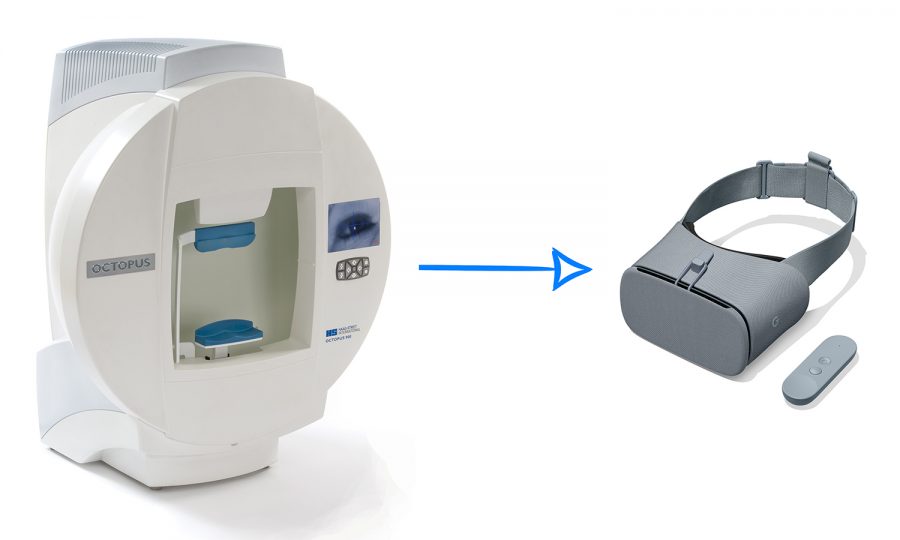UI researchers to demonstrate virtual-reality headsets to Congress
Researchers with UI Health Care and the Veterans Administration will demonstrate their virtual-reality headset to Congress today.
June 19, 2019
Michael Wall, a University of Iowa professor of neuro-ophthalmology, will demonstrate to Congress the creation of a virtual-reality headset that will allow access to testing for people with degenerative eye conditions.
The Veteran’s Administration gave a grant to the research project four years ago, Wall said.
The device will improve veterans’ lives by making visual testing and monitoring available in many different venues, such as waiting rooms, outreach clinics, and in patient’s homes, according to a press release from the VA.
Wall said part of his research involves testing the visual field, and he wanted to create a better test than currently used. He formed a team of UI engineering students taking a senior design class to help with the project.
One of the computer-engineering students, Meghan Hartry, stood out to Wall and ended up working on the research project all four years.
“We were looking at a specific machine that helps people who have degenerative eye diseases, like macular degeneration,” Hartry said. “But there’s going to be different points in your visual field that start to go blind, so that needs to be tested regularly to see if it’s getting worse or to see what type of treatment they’ll need.”
RELATED: Virtual reality aids Alzheimer’s research
Hartry said they used a Google Daydream, a virtual-reality headset, in combination with an Android smartphone to make the cheapest product that is more portable and accessible for people who don’t have access to the traditional testing method.
Hartry said people are skeptical that the original visual-testing equipment will do a better job than their VR headset, but the team’s goal is to make it work better with bonus capabilities.
According to the press release, it is 0.3 percent the cost of traditional equipment at $100.
“People in [developing] countries don’t have access to $30,000 equipment,” Wall said. “And the most common blinding disease in the world in adults is glaucoma. With the VR headset, they can start to diagnose and test portably before visual problems worsen.”
RELATED: University of Iowa gives six veterans new dentures
Glaucoma causes irreversible blindness, according to the press release.
“Detecting glaucoma early is vital to preventing progressive visual loss and blindness,” the press release said.
Wall said the VR headset works by connecting the Android device into the headset, plugging in the patient’s age, sex, and other identifying data, and then begining the visual tests.
The VR system measures an individual’s ability to see dim, bright, or no light at all. Normal vision sees dim lights, but people with damage to the optic nerves either see bright or no light at all, Wall said.
Each year, the VA showcases three research projects in Washington, and Wall is excited to be chosen to demonstrate the work to Congress.
Wall said he expects the product to be complete and working within a month, and the team’s next step is to conduct testing using it.
“We’re going to collect data from 100 healthy subjects to know what the normal values are and then eventually start testing patients with disease for screening,” Wall said.














